North Dakota has ranked as the best state to start a business for two years in a row, with real GDP growing 12.4% in Q1 of 2023 and personal income up by 11%, making it a great time to sell your business to get top profit – when done right.
However, selling your small business in North Dakota can be worrisome and overwhelming, with details such as selling at a good market value, handling paperwork like legal documents and financial statements, and finding the right buyers. You may feel nervous about sharing private information such as your trade name or customer list.
Questions about what your business is worth are common, too. If you have built up a strong brand and want to get top market value, the process may seem confusing.
Many people share these same concerns when they think of selling their business here. North Dakota has been ranked the best state to start a business for two years straight, so buyers are looking for good opportunities.
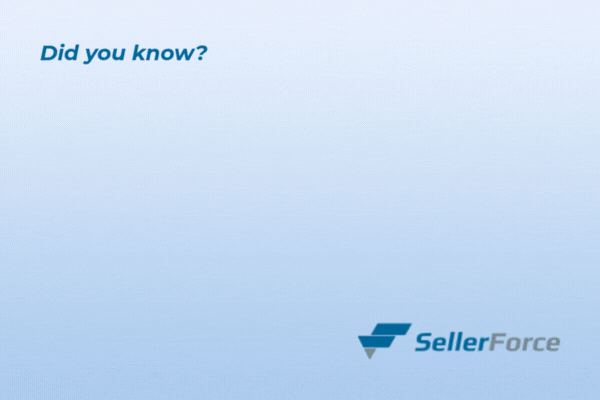
This guide covers all the steps from using the Secretary of State’s secure website for “doing business as” documents to getting an accurate appraisal with tools like profit and loss statements and asset purchase agreements.
In this guide, you will see how to check your performance, avoid mistakes that sellers often make (like unclear finances), work with trusted brokers in Fargo or other cities, handle local sales tax needs, sort legal documents, and more.
You will find clear steps on building your exit plan, and get answers matched to real problems faced by most sole proprietors or LLCs today.
Key Takeaways
- North Dakota has ranked as the best state to start a business for two years in a row, with real GDP growing 12.4% in Q1 of 2023 and personal income up by 11%, making it a great time to sell if your financial records are clear and updated (source: U.S. Bureau of Economic Analysis).
- Sellers should review personal goals, recent financial statements, sales tax records, licenses, and asset lists before listing their business; missing or messy documents can lower offers or delay deals.
- Using trusted business brokers like SellerForce helps avoid common mistakes, such as emotional pricing, unclear paperwork, or weak marketing, and connects sellers with serious buyers statewide using secure online data rooms.
- Legal steps include filing ownership transfer forms with the North Dakota Secretary of State for any trade name/DBA changes, checking local tax rules (like capital gains), and having all permits current before closing.
- A full exit plan includes setting fair prices using accurate appraisals and well-organized contracts; getting expert advice on legal issues or sales agreements makes selling smoother and safer for both sides.
Assessing the Right Time to Sell Your Business
Timing matters a lot—you want to get the present value as high as possible before you sell. Review your business performance, local housing prices, and market options in Fargo, North Dakota, to see if conditions are right for a sale.
Personal and Professional Goal Evaluation
Start with your own goals before thinking about a sale. Some of us want more time with family, while others might look for new business options or early retirement. Selling can free up cash for other interests or simply offer peace of mind after years at the helm.
Check if this move will meet your plan, personally and professionally.
Your decision often depends on how selling matches things like money needs or future job plans. For example, do you aim to fund another project or cover living costs? Maybe you need liquid assets for health needs or paying off debt.
Asking these questions help you set a clear direction that fits both life changes and business wishes. This step shapes what comes next in reviewing performance and exit strategy details, such as choosing between liquidation of assets or merger and acquisition paths.
Current Business Performance Review
After setting your goals, we need to check the health of our company. North Dakota’s projected GDP for 2024 is $59.9 billion, showing a small drop from 2023’s $60.3 billion. This tells us that market conditions may affect how buyers view our business value and return on investment.
We should review recent financial statements and use tools like spreadsheets to measure income and costs quickly. Let’s look at cash flow, customer loyalty, sales tax records, and licenses or permits tied to our trade name or DBA status with the secretary of state.
Keep track of both tangible assets, like equipment, and intangible ones, such as logos or intellectual property that’s registered with the U.S. Patent and Trademark Office. These steps are essential for preparing for due diligence by business brokers, ensuring you meet legal requirements in North Dakota, and supporting a precise business appraisal through methods like discounted cash flow analysis before proceeding with a sale.
Market Conditions Analysis in North Dakota
North Dakota’s business climate looks strong right now. Real GDP in the state grew by 12.4% during Q1 of 2023, leading the nation on July 12, 2023. Oil and gas extraction plus mining sparked this rapid growth.
Personal income is climbing fast, up by an annualized rate of 11%, putting North Dakota third across the country. These conditions create a great time for a business appraisal or to plan your exit strategy.
It is best to use a formal business valuation method, like discounted cash flow or the income approach, to set fair prices that match current market trends. With high sales tax collections and rising incomes in cities like Fargo, buyers look at North Dakota as a place with strong demand for new ventures, especially if your business has clear financial statements and customer experience data ready for due diligence steps.
Preparing to Sell Your Business in North Dakota
Have all financial statements, licenses and permits, and legal documents—like your bill of sale—organized before finding buyers. Getting a proper business appraisal helps one understand the true value of assets so as to support one’s exit strategy and avoid common mistakes, which result to low close rates.
Avoiding Common Seller Mistakes
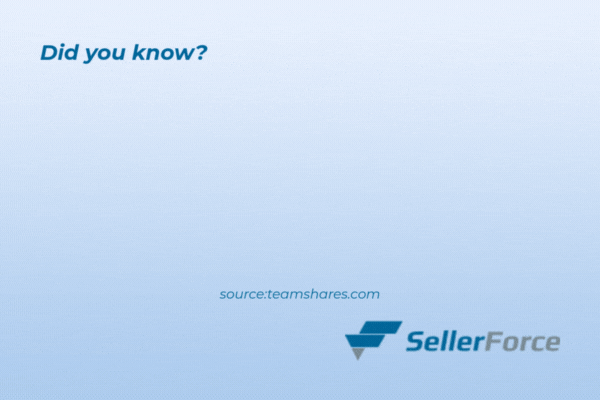
Many sellers in North Dakota miss out on top value by making simple mistakes. It is not uncommon to see owners set the price based only on their feelings or hope, not a true business appraisal or market-based valuation.
Some skip updating financial statements and leave sales tax records messy, which scares off buyers during due diligence.
Avoid listing your company before doing a deep review of performance and assets. Rushing to sell without clean legal documents or up-to-date licenses can lead to distrust and delays with qualified buyers.
Forgetting key steps like securing sensitive information through non-disclosure agreements also puts the sale at risk.
Using a skilled business broker greatly helps target real buyers and manage paperwork, so as not to get stuck in long timelines or accept lower offers than what your North Dakota business deserves.
Essential Preparation Steps
After outlining key mistakes like unclear financial statements, emotional pricing, and not preparing documents in advance, you need a plan that works, starting with a business performance review.
This means checking sales numbers and forecasts to see how strong your company is right now. You should also gather profit reports to make it easy for buyers to understand your value.
Next comes getting all financial statements ready, including asset audits. In North Dakota, it’s smart to have clean records for taxes and licenses—like sales tax filings or doing business as (dba) paperwork filed with the Secretary of State.
You should keep every contract, permit, and trade name registration in one place so due diligence goes faster.
Legal steps matter too; things like the federal employer identification number and making sure the registered agent info is current will save time later. Using tools such as secure websites or online data rooms keeps sensitive information safe when sharing with brokers or buyers.
Working with an expert business broker can help you avoid low valuations or legal risks during the sale process—SellerForce offers support without upfront fees and has closed over $2 billion in deals since 2001 across Fargo and other cities statewide.
Smoother exits happen when these steps are done before listing your firm for sale on any public platform or sealed bid auction site.
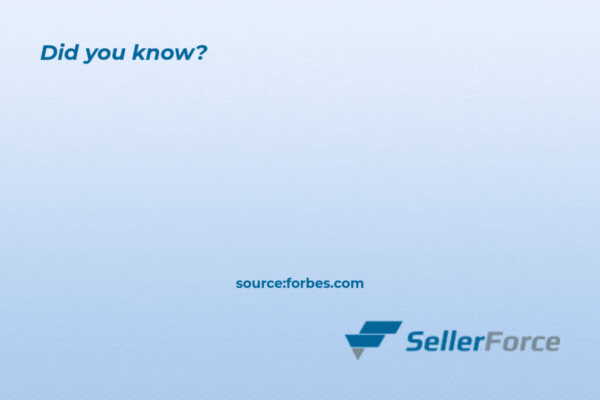
Conducting a Business Performance Review
Check your financial statements and measure key business results. A review helps you see if our numbers line up with the current North Dakota market, which faces a 0.7% real GDP drop in 2024 compared to last year’s $60.3 billion.
Look at profits, cash flow using the discounted cash flow method, sales tax records, and asset values for an accurate business appraisal.
You should also track sales trends, customer touchpoints, licenses and permits status, and any sensitive information that may impact value. This shows where your business’s strengths are—and what still needs work—before you talk to a qualified business broker or prepare for due diligence.
By using clear data from tools like QuickBooks or reports from the Secretary of State website, you give buyers facts they can trust about your sole proprietorship or S-corporation in Fargo, North Dakota.
Preparing Financial Statements and Performing an Asset Audit
Preparing financial statements gives buyers a clear view of your business health. Buyers expect to see balance sheets, income statements, and cash flow reports to show profits and losses over recent years.
Clean records help you set the right price for our business valuation. Buyers in North Dakota expect these details before making an offer or starting due diligence.
Performing an asset audit lets you list all assets—equipment, inventory, intangible assets like trade names or doing business as (DBA). This step helps prevent mistakes in counting what you own and what needs repair or replacement.
A thorough check brings clarity on value which makes negotiations easier with brokers or potential buyers. Using accurate financial statements and audit results supports a faster sale at top market prices in North Dakota’s strong economy.
Organizing Legal and Operational Documents
Once you sort your financial statements and audit assets, the next step is to organize your legal and operational documents. Gather all business licenses and permits. These may include a trade name or doing business as (dba) paperwork filed with the Secretary of State in North Dakota.
Keeping sales tax records current helps show buyers that you meet local rules.
Collect contracts, leases, insurance policies, employee agreements, and any attachments related to operations. This might also mean updating your resident agent details for compliance checks.
Each document should be easy to find—buyers want fast due diligence without worry over missing sensitive information. Using online data rooms keeps files secure but accessible if needed during the sale process.
Engaging a Qualified Business Broker
After organizing legal and operational documents, you need the right person to guide the sale. Work with a qualified business broker to help you through this process. Our company, SellerForce stands out here, offering over 20 years of experience and $2 billion in successful transactions for sellers across North Dakota, we run on a commission basis with zero upfront fees.
Business brokers handle sensitive information, protect trade names, manage due diligence, and connect us to buyers who understand our goals. They use secure websites and online data rooms so our financial statements are safe during review.
Brokers know how to market a business “doing business as (dba)”, file paperwork with the secretary of state, advise on sales tax or licenses, and prepare everything needed for asset audits or liquidation if we choose that path.
Their strong network reaches people ready for exits—whether in Fargo or other North Dakota towns—so we can keep anxiety low during each step of selling our company.
The Role of Business Brokers in North Dakota
Business brokers in North Dakota help us handle business valuation, safeguard sensitive information using secure websites and online data rooms, and increase buyer interest—all explained further in the next section.
Benefits of Hiring a Broker
A skilled business broker can save the business seller’s time and help avoid costly errors. With over 20 years in the field, SellerForce has guided sellers through $2 billion in successful transactions, using our deep knowledge of North Dakota’s market and sales tax rules.
Our team handles sensitive information with care, protects your trade name or doing business as (dba) status, and keeps all talks secure on a protected website.
Business sellers gain access to strong buyer networks and support with vital steps such as business valuation, due diligence, reviewing financial statements, and asset audits. By leaning on our experience, without paying upfront fees, we keep deals moving fast while lowering stress about legal documents, licenses, and permits… even preparing clear sales agreements for the Secretary of State’s review.
Business Valuation Services
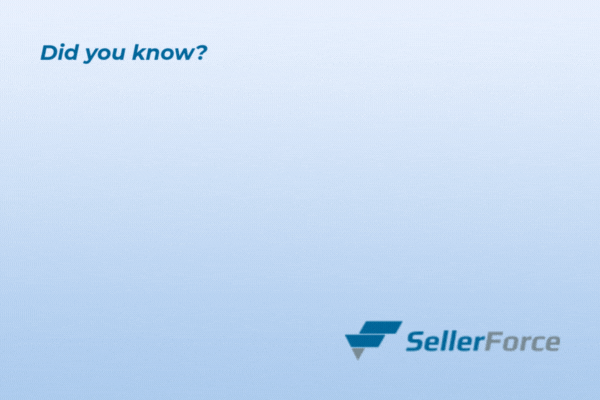
Business valuation helps find the fair price for your company in North Dakota. Our business brokers use local data, financial statements, and asset audits to get this number right. Lower valuations may happen without expert support, especially if you try to sell alone or miss important steps like a business appraisal.
Shortlisting serious buyers also raises value; it lets demand shape our final sale price.
By hiring a good broker with knowledge of Fargo and state tax rules, we can include all assets and cash flows in our assessment. This process uses trusted standards, such as those set by the U.S. Small Business Administration, not just guesses or feelings about emotional states during the exit strategy stage.
Accurate numbers help both sellers and buyers trust each step of the deal. Next up is due diligence assistance from our broker to make sure no detail gets missed before closing a sales agreement.
Due Diligence Assistance
We help by guiding buyers through due diligence. This process checks everything about the business, from financial statements to licenses and permits. We keep all sensitive information safe in secure data rooms.
Our team gathers records like trade name documents, sales tax reports, doing business as (dba) filings, and asset audits for careful review.
We make sure every detail is clear before a sale moves forward. Buyers look at each record to confirm our numbers match what we claim—no surprises later on.
Legal papers must be complete too; this includes contracts with vendors or workers under laws like the Worker Adjustment and Retraining Notification Act if needed.
With these steps handled, we prepare to market your business for sale next.
Marketing Your Business for Sale
After careful due diligence, we shift focus to the preparation of the materials to market to qualified buyers. Good marketing draws in serious and well-matched buyers. Strong business valuation numbers help us pitch an attractive story from the start.
We use digital channels like a secure online data rooms to protect sensitive information before buyers have signed the right agreements.
With help from a skilled North Dakota business broker, such as SellerForce, we tap into local buyer pools and professional networks built over 20 years, leading to $2 billion in closed deals.
Using clear financial statements, proof of licenses and permits, plus verified trade name or DBA status lets potential buyers trust what they see. Proper sales tax records also keep everything ready for fast checks by interested parties in Fargo or other cities across North Dakota.
Vetting Potential Buyers
Following the marketing phase, we start screening each buyer. This step helps us filter out those who lack funding or real interest. Our business broker uses tools and their market knowledge gained from North Dakota deals to review each prospect’s financial statements and experience.
We want only serious buyers who can follow through with a sales agreement and respect sensitive information.
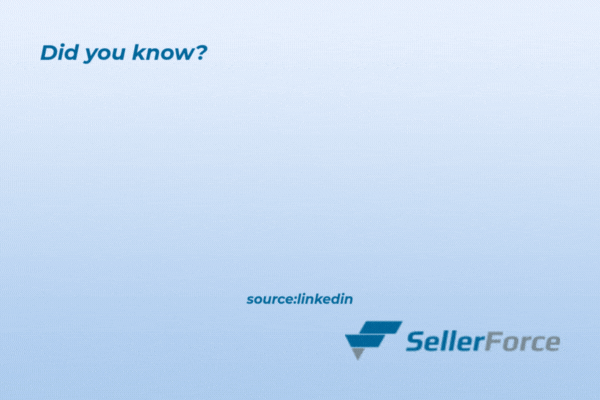
With proper vetting, we avoid wasted time on unqualified leads and lower the risk of failed deals or negative emotions later in the process. By using secure websites like online data rooms, we keep trade name details, licenses, permits, tax records, asset audits, and other private files safe during due diligence.
Engaging an experienced broker allows you to connect with buyers ready for purchase—whether they are local S corporation owners in Fargo or investors looking for their next acquisition across North Dakota.
Utilizing Online Data Rooms for Confidentiality
Online data rooms let us share sensitive information with buyers in a secure way. We use them to upload financial statements, sales agreements, and legal documents. Only people we approve can access these records.
Each visit gets tracked, so we always know who views our files.
These tools help us keep business performance reviews and asset audits private during due diligence. As sellers in North Dakota, protecting confidential details builds buyer confidence and makes deals smoother.
Secure websites guard against unauthorized access while making file sharing easy for brokers, accountants, or the Secretary of State’s office if needed. Using online data rooms is now standard for safe business transfers across Fargo and beyond.
Legal and Tax Considerations in North Dakota
Understanding North Dakota’s rules for transferring business ownership helps us prevent problems at closing. Careful review of sales tax records and licenses keeps the sale process smooth—and protects both seller and buyer interests.
Local Tax Obligations
Local tax obligations affect the financial outcome of selling a small business in North Dakota. We must check sales tax records and review all licenses and permits with the Secretary of State.
Tax compliance keeps the transaction safe from heavy fines or delays during ownership transfer. For example, failing to pay local sales taxes may stall the exit strategy or lower offers you get.
Capital gains taxes can impact how much profit you take home after liquidating assets or closing the sale agreement. A qualified tax professional gives case-specific advice about North Dakota laws, including rules for doing business as (DBA) names and trade name registration.
These experts help us spot issues before they cost you money at closing, allowing clear planning while keeping sensitive information secure on the web. Careful attention to these details helps set fair prices and smooths out negotiations with buyers across Fargo, Bismarck, or any city in the state.
Legal Requirements for Ownership Transfer
After considering sales tax rules, we must meet several legal steps to transfer business ownership in North Dakota. We need to file the right paperwork with the Secretary of State if your business uses a trade name or is registered as “doing business as” (DBA).
This action makes sure new owner details are shown on public records.
Before signing a sales agreement, both parties should review all licenses and permits. These may need updating or reapplying under the new owner’s name.
Collecting and sharing sensitive information, such as financial statements and operational documents, helps finish due diligence with information kept secure and confidential.
Preparing a Comprehensive Sales Agreement
Transferring business ownership in North Dakota means you need a clear, comprehensive sales agreement. You must cover all legal and tax obligations—state law often requires to include details about licenses and permits, as well as how assets will transfer.
Your agreement should address the division of liabilities tied to sales tax or gift tax. Listing each asset in your financial statements helps prevent disputes.
Working with a business broker such as ours at SellerForce adds extra protection—we spot hidden legal loopholes that could cause problems later. A good broker also ensures our pricing reflects an accurate business valuation and not just a quick liquidation of assets.
Each deal needs custom terms; for example, companies operating under a trade name or doing business as (DBA) in Fargo may face specific state rules set by the Secretary of State. Outlining steps for handling sensitive information keeps both seller and buyer safe during due diligence.
Why Work with SellerForce
We know North Dakota’s business market and use data-driven business appraisal methods—helping sellers get the best possible outcome. Let’s look at local market knowledge and why it matters for choosing the right broker in North Dakota.
Local Market Expertise in North Dakota
We use our 20 years of experience and $2 billion in successful transactions to help sellers in North Dakota. Our team understands local sales tax rules, market trends, and the Secretary of State regulations.
We know how important a strong trade name or doing business as (DBA) is for your sale.
Our connections in Fargo and all across North Dakota let us find serious buyers fast. We see how behavior, thoughts, licenses, and permits impact each deal.
Using American Standard Code for Information Interchange tools keeps sensitive information safe on our secure website during due diligence or liquidation of assets.
With SellerForce’s commission-based service and no upfront fees, you get honest support from start to finish.
Strong Professional Networks and Buyer Connections
Building on our local expertise, we use our strong professional networks to link sellers with the right buyers. Over 20 years, SellerForce has connected over $2 billion in business deals across North Dakota and beyond.
Our long-standing contacts often include key decision-makers, investors, and qualified buyers looking for opportunities like yours.
We reach deep into the community using secure websites and trusted online platforms. This helps protect sensitive information while finding real buyers fast.
By tapping into these networks every day, we speed up due diligence.
We match business owners with serious buyers who value proper trade names or have experience with sales tax issues in Fargo, North Dakota. Solid connections let us close deals smoothly and at top value—because timing matters in a strong market like this one.
Proven Track Record of Successful Sales
We have closed over $2 billion in small business transactions with more than 20 years of experience. This strong record shows our expertise in helping owners sell businesses, including those using a trade name or doing business as (dba).
We know how to keep sensitive information safe on every secure website and online data room.
Our team has helped sellers across North Dakota, from Fargo to rural towns, find buyers quickly and at top value. We use careful due diligence and focus on sales agreements that protect everyone involved.
Wrapping Up: Your Best Option to Sell Your North Dakota Business
North Dakota offers an exciting market with strong growth, low taxes, and high GDP per person. Getting ready to sell a business here means staying clear of common mistakes like weak planning, unclear records, poor pricing, or neglecting exit strategy steps.
Using tips such as reviewing financial statements and working with skilled brokers helps keep the process simple and smooth. These actions can make the difference between just listing your business or closing a successful sale that meets your goals.
If you want a stress-free way to sell your North Dakota business, with no worries of legal issues, let SellerForce do the heavy lifting for you. That way, you can attend to personal and other things, while getting the top profit and faster transactions with vetted buyers.
Our 100% success-based brokerage service with no upfront fees is a testament to our confidence, commitment, and motivation to sell your business at the best valuation.
FAQs
1. How do I start preparing to sell my small company in Fargo, North Dakota?
Check your financial statements, tangible and intangible assets, and gather sensitive information. This will help getting a solid business valuation or appraisal. Review licenses and permits, plus your trade name or doing business as (dba) status with the Secretary of State.
2. What is due diligence when selling a small company?
Due diligence means sharing details like sales tax history, financial statements, and any licenses or permits. Buyers will review this information on a secure website to check for accuracy before signing a sales agreement.
3. Do I need to change my trade name or DBA before selling?
You may need to update your trade name or DBA records with the Secretary of State if you plan to liquidate assets or transfer ownership.
4. How does an exit strategy help me sell my business?
An exit strategy can guide each step; it helps decide if you want full sale, partial sale, or the liquidation of assets. It also keeps your goals clear during talks about price and terms in the sales agreement.
5. What should I know about handling sensitive information during the process?
Keep all documents safe using secure websites and avoid automatic translation tools for private files. Share only what is needed during due diligence so buyers trust your process but cannot misuse data after closing the deal.